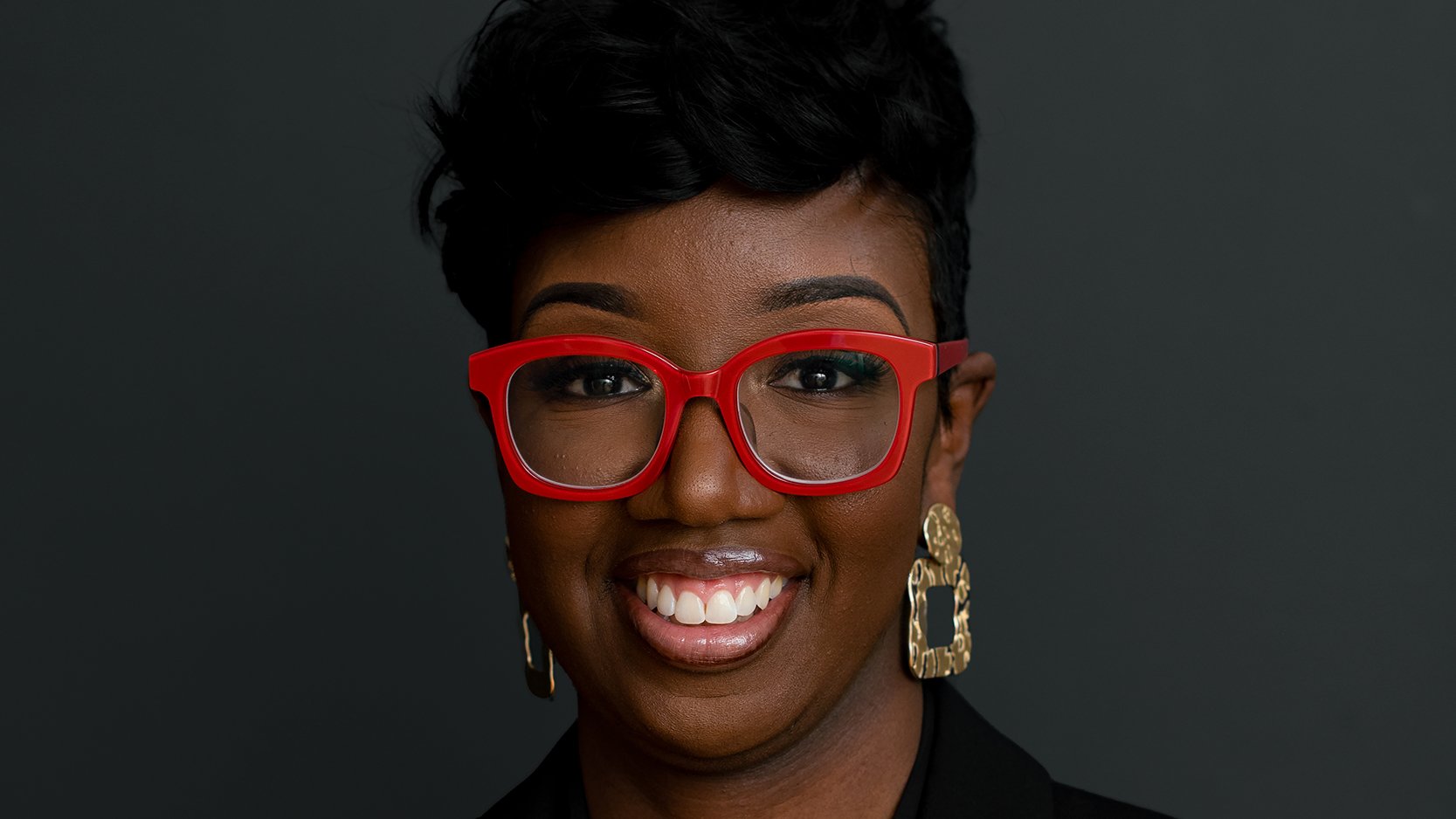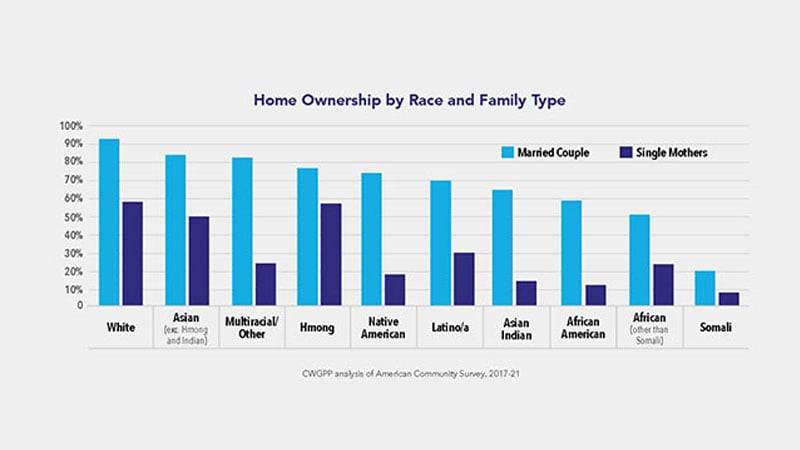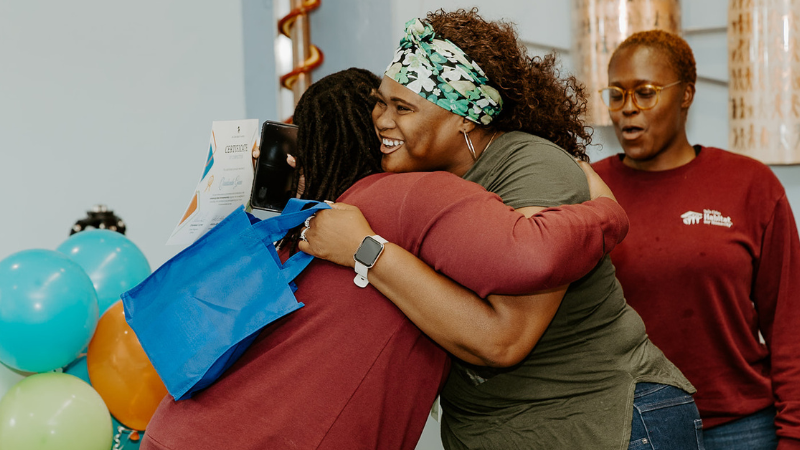Advancing Minnesota’s Ecosystem Through Pay Equity
This guest blog post by Tiffani Daniels is part two of a four-part blog series about our partnership with the Minnesota Business Coalition for Racial...
6 min read
Aaron Lichtov
:
10:01 AM on February 29, 2024

Twin Cities Habitat Partners with MBCRE to Advance Racial Equity in Minnesota’s Ecosystem:
An Exclusive Interview with Tiffani Daniels, Managing Director of the Minnesota Business Coalition for Racial Equity
Habitat: Let’s start with the basics: what is MBCRE? How did it come about—who (besides Twin Cities Habitat) were the first catalysts and how were they connected to each other prior to the formation of MBCRE?
Daniels: The Minnesota Business Coalition for Racial Equity (MBCRE) was formed in 2020, just weeks after the murder of Mr. George Floyd in the city of Minneapolis. None of us knew what to do, but as leaders in the business community, we knew that we had a role to play in addressing inequities for Black Minnesotans. General Mills, U.S. Bank, 3M, Best Buy and Children’s Minnesota were among the early catalysts of what would become a more than 60-member organization.
Habitat: MBCRE’s work focuses on equity, stability, and generational wealth creation through a business lens, centering Foundational Black Americans at its core. What is the perception of this broad work, in collaboration with other equity initiatives that center marginalized groups?
Daniels: An ecosystem is required when we're talking about wealth generation. We cannot put a magnifying glass on just one piece of the puzzle. We have to talk about wages and pay transparency, homeownership, and entrepreneurship at all stages. All of these things contribute to closing the wealth gap and are required to achieve the sort of transformation we need in this region and beyond. We bring the private sector together with community organizations like Habitat to identify ways that resources from the business community can amplify or accelerate the great work already happening in our communities. That requires connectivity, collaboration, and an appreciation of the work that all partners are doing to address the wealth gap.
Habitat: You state on your website “we are here to honor existing work already being done in the community.” Could you give some examples of the kind of work you are referring to? Twin Cities Habitat has partnered with TurnSignl, introduced to us by MBCRE. We’d love for readers of our blog to know about other work you’d like to elevate.
Daniels: One of the longest-standing challenges to achieving racial equity is the number of people who step into a community with intention to change everything. However, MBCRE is committed to achieving equity for and with communities. That means listening to the solutions they’re already exploring and identifying ways to support good work that’s already being done. Platforms like TurnSignl are great, and they can do more with the right amplification and more capital. We applied the same principle to First Independence Bank with our deposit challenge. Earlier this year we rolled out a partnership with plural to ensure more citizens have access to what’s going on legislatively. We are leveraging our network and resources to scale solutions that already exist. These solutions are already here; MBCRE helps figure out how to accelerate them to achieve even greater reach.
Black-owned, Minnesota-based TurnSignl is an on-demand, real-time service that provides 24/7 legal guidance from an attorney to drivers while their camera records the interaction. TurnSignl attorneys are vetted and trained to de-escalate interactions between police, drivers, and passengers. TurnSignl was born out of necessity, in the same city where George Floyd tragically lost his life to police violence.
Habitat: Can you speak about the value to MBCRE of partnering with Twin Cities Habitat?
Daniels: One of our primary focus areas is on elevating community-centered solutions to some of the most common problems. In the case of our partnership with Twin Cities Habitat, we are addressing one of the most pressing issues in our community: access to homeownership. We collaborated with Twin Cities Habitat and others to support downpayment assistance for first generation homebuyers in the 2023 legislative session. We’re happy to listen to the long-standing partners and experts with close proximity to the community to inform our policy priorities, especially those with a focus on Foundational Black Americans.
We also had the pleasure of having Shereese Turner’s leadership in one of the MBCRE pillars, Community Well-Being, last year. Shereese brought her insight, network, and expertise to help identify opportunities for the corporate community to take action. We’re grateful for partnership at all levels.
Habitat: Do you see your work also influencing businesses that are not (currently) MBCRE members? Are you actively recruiting other corporations to join MBCRE?
Daniels: We regularly host open forums on topics related to diversity, equity, and inclusion. Our events reach beyond our members and demonstrate the power of the ecosystem. No single organization or sector can affect the level of change that we can collectively. Our doors are open for current members to renew membership, new members to join the coalition, and old members to return to the mission. We invite organizations to learn more about the commitment by visiting https://mbcre.org/#get-involved. We absolutely cannot do this alone.
Habitat: You articulate a commitment and a challenge not just to reflect but to act and have developed an Allyship Toolkit to help members become better allies to Foundational Black Minnesotans. Can you talk a little bit about the development of the toolkit? How is it currently being used? How do you see that evolving?
Daniels: Our members have been very vocal about their desire to take action. The toolkit leverages resources from several MBCRE member companies and democratizes the information. We took what several companies were using internally pulled it together, and made it available to the public. The toolkit gives allies language and resources to take back to their companies. Additionally, our quarterly All-Hands meetings offer an opportunity to discuss our challenges and efforts in real time. We also just announced the creation of our Institute for Growth-Driven Equity which will offer members an opportunity to learn and apply best practices on a larger scale.
Habitat: In a February 2021 Star Tribune op-ed piece by MBCRE’s co-chairs, you stated:
To Black Minnesotans: We are penning these priorities and commitments so that you may hold us to them. As we build out our strategic plans over the next year, we will be listening to you, measuring progress against our goals and amplifying the work that is already being done, rather than simply duplicating efforts.
How are you soliciting/collecting feedback from Foundational Black Minnesotans (via both individuals and member organizations) about your work? What does being accountable and committed look like in practice? What do you think has been the impact of MBCRE’s influence on your identified issue areas?
Daniels: Many organizations take the summer off. We took the summer on and hosted a series of listening sessions to hear from our members about their experiences and community observations. As a result, we have been able to pivot our approach to action, ongoing meetings, and member learning sessions. So far we have been able to: gather Black Employee Resource Groups (ERGs), support passage of legislation to benefit the community, and increase spending with Black businesses, just to name a few.
Habitat: In your 2022 Impact Report you articulate as a goal “fill the missing gap of building local Black media.” Can you talk about that gap and what MBCRE is doing to fill it?
Daniels: Corporations are well aware of the power of advertising and so committed that they invest hundreds of millions of dollars annually to amplify their messages. Yet Black media channels only receive about 1.16% of that. To address this, we convened local Black media outlets and MBCRE member companies to rebuild trust and create partnerships. We encouraged our members to join MBCRE in committing a percentage of their annual ad spend to Black-owned media companies. In 2023, we sponsored Black media outlets, including Insight News, Sahan Journal, and the Spokesman-Recorder to amplify the work of our members in the community.
Habitat: With regard to police accountability/police officer standards and training, you’ve stated, “The work we do today is just as vital as it was in the days, weeks and months after George Floyd’s murder. I’m committed to maintaining that fierce sense of urgency, so that when the conversation lags, MBCRE re-energizes it. When our focus drifts, we come back to center.” What does re-energizing look like in this context? In what ways can other allies, community members and businesses make tangible steps to build forward from here?
Daniels: Re-energizing is not forgetting why MBCRE was created and the calls for justice in 2020. Re-energizing is asking direct and hard questions. How much of what we said we were going to do in 2020 has been done as of 2024? What action will I take today that will get us closer towards our definition of progress for tomorrow? MBCRE is constantly revisiting the promises and progress. We are opening the lines of communication and offering best practices as solutions. We are challenging ourselves, our members to do something. Host conversations. Make financial investments. Hire and promote Black talent. Participate in policy making. Evaluate the systems and practices that may be harmful and change them.
About Tiffani Daniels: A native of Detroit, Michigan, Tiffani Daniels is a brand builder, strategist, and racial equity advocate. It was her formative years in Detroit and training as a business leader that prepared her to serve as the inaugural Managing Director for the Minnesota Business Coalition for Racial Equity (MBCRE), where she is responsible for building the organization’s strategy, structure and operational plans to drive economic impact by leveraging the resources of Minnesota’s business community. In two years, she has positioned MBCRE for unprecedented impact and action.
This Q & A is part one of a four-part blog series about our partnership with the Minnesota Business Coalition for Racial Equity (MBCRE). Subscribe and follow the Building Community blog at https://www.tchabitat.org/blog.
Your gift unlocks bright futures! Donate now to create, preserve, and promote affordable homeownership in the Twin Cities.

This guest blog post by Tiffani Daniels is part two of a four-part blog series about our partnership with the Minnesota Business Coalition for Racial...

Several years before adopting our new Strategic Plan: Build Forward Together, Twin Cities Habitat began seeking creative solutions to bridge the...

A January 2024 article by NPR reported on a study that found housing is now unaffordable for a record half of all U.S. renters. When we focus on...